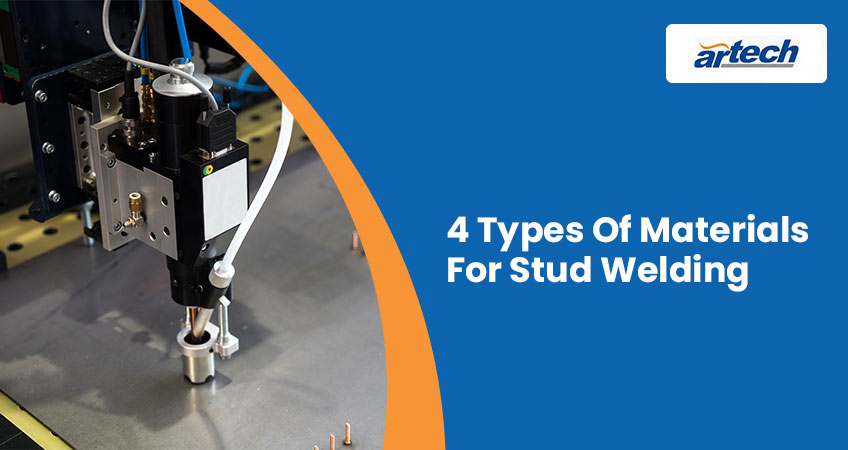Stud welding is the most preferred welding method because it is inexpensive and time-saving. It doesn’t require expensive stud welding equipment, it uses fewer materials, and you can complete a stud weld cycle within a few seconds. Stud Welding is ideal for joining pieces of materials together, as it produces strong and long-lasting bonds. Industrial application of stud welding includes attaching metal studs or plates together to form structural frameworks for buildings, bridges, and so on.
If you are trying to find the right material for stud welding, it is essential that you understand each of their properties and usage. One of the most important things to consider when selecting a metal for stud welding is its hardness. A harder metal will be more durable and less likely to deform than a softer metal. Along with the best material, it is crucial to choose the right stud welding machine. You should always ensure that you use high-quality, durable equipment when it comes to this type of work. One important consideration is whether or not your tool can be adjusted or customized in some way – this will make setting it up a lot easier down such as Artech’s Stud Welding machines.
STEEL
Steel is a great material to use for stud welding because it is strong, easy to work with, and inexpensive. It is suitable for the drawn arc stud welding and capacitor discharge stud welding processes. A lot of people use steel when they are stud welding because it is a sturdy material that has many properties that make it a good choice. Stud welding steel alloy is limited and often not recommended. You must try to avoid it as much as you can.
ALUMINIUM
Aluminium is an excellent material for stud welding. It has high strength and low weight. Aluminium alloys, an alloy of aluminium with other metals, are tougher than pure aluminium and can be used to make objects that need to withstand greater forces. Alloys typically use an element such as copper, zinc, magnesium, titanium or manganese because they give aluminium different properties such as increased strength or resistance to corrosion.
COPPER
Copper can be used for welding studs. It has high conductivity, which means that it doesn’t heat up in the same way as steel does when in contact with a stud welder. This material also has high corrosion resistance, which means that it doesn’t need much maintenance when used for stud welding. Copper is another material with distinct advantages and disadvantages. It can be used with brass weld studs, non-ferrous metals such as aluminium. It’s the best choice in the food industry. However, it is expensive and has a lower surface hardness than steel or stainless steel.
BRASS
Brass is an affordable alternative to other base metals, such as steel or aluminium. Brass for stud welding can be used in various applications because of its ductility and resistance to corrosion. Brass is a soft metal that is easy to work with and has a low melting point. However, it is not as strong as other metal options for stud welding and should not be used for high-strength applications.
CONCLUSION
Welding is a job that requires a lot of patience. It is a process that takes time and focus. In order to get the best results, you need to have the right equipment and know-how to use it. There are many factors that contribute to a good stud weld, but there are two primary considerations: The material being welded and the equipment used for welding. There are many different pieces of equipment that can be used. The type of metal being welded will determine which machine should be used for the particular job scope. Stud welding machines are key equipment that is required for hassle-free welding, and why compromise on it when you have Artech’s stud welding machines. Get in touch with our team to enquire more about our welding machines, the scope of customization and bulk orders. Shift to better welding with Artech Welders!

